The terror of Tesco’s finest…
Why is the family of Somalia’s secret service chief living in a subsidised house in Leicester? Because 18 months ago, General Darwiish was a forklift-truck driver at Tesco’s Daventry depot – and every little helps. Aidan Hartley reports on the UK-based Somalis governing a country on its knees
Last updated at 5:47 PM on 23rd May 2008
There is a shockwave – no bang – and an explosion sucks air out of my lungs so violently I taste blood. I glance back through the truck’s rear window and see a whirlwind of black smoke and people running. My cameraman says, ‘Roadside bomb. A couple of the guys have taken shrapnel.’ He’s talking about the gun-toting security guards in the pick-up behind us, who defend us in case of ambush as we drive round Mogadishu. Their truck has taken the full blast. The bomb was probably triggered by an insurgent using a mobile-phone detonator.
UN tanks leave Mogadishu during the civil war
In the back of the truck, a gunman is pulling at a limp body with a fist-sized hole in the neck, and there are pints of blood. It’s Abdi, 21, a guard; he was quiet, polite and had just become a dad. His eyes are open.
Two bystanders are lying in the road. One of them is face down, not moving. The other lies on his back, chest heaving, his guts hanging out. Nearby, a woman on her way back from the market carrying a can of cooking oil sits slumped in the dust, her arm hanging in bloody ribbons.
Soldiers arrive, shooting wildly in the air, and I realise that we’re sitting targets for a possible secondary attack. We duck down an alleyway and a man comes up to me, yelling. ‘We want peace!’ He holds his head. ‘Peace and life! You know? Peace. Life. I don’t want the fighting.’
A call comes through minutes later, as we’re racing to Medina Hospital and I’m holding another of our guards, who is groaning and bleeding from a leg wound. ‘Praise be to Allah, we have killed two Russian spies,’ says a voice on the phone to my translator. It’s the militant Islamic insurgents. Our translator spits back, ‘You stupid idiots, these are journalists.’


General Darwiish: head of Somalia’s National Security Agency
In Mogadishu, you hear Improvised Explosive Device (IED) explosions all the time: while in the shower, eating your lunch, interviewing sources.
You hear the BOOM! And then ask what the target was and how many died.
There is nothing you can do about roadside bombs. It makes emerging on to the streets an incomparably terrifying experience.
My cameraman Jim Foster and I continue working. Mogadishu is like Baghdad, except there’s no Green Zone or friendly military bases in which to take refuge; we are the only Westerners here.
In Medina Hospital, surgeon Mohamed Yusuf and his team manage to save the woman – named Faduma – whose arm was smashed in the blast. ‘Shelling is continuous,’ he says, shaking his head. ‘The bullets are continuous. Continuous, continuous, continuous.
I had 165 injuries come in on one afternoon.’
The Somali doctors work for subsistence pay, sometimes doing 18-hour shifts. On his way to hospital today, Mohamed was waylaid by armed men in uniform, robbed and almost killed. Despite this, he still turned up to work.
Medina Hospital is always busy; it has the only functioning trauma ward in the south of the Somali capital.
Thousands are dying in street fighting and there’s been a mass exodus from the city. Things are the worst I’ve seen in 17 years of covering the civil war here, which explains why UN officials have designated Somalia as ‘Africa’s worst humanitarian crisis’.
Why is it so bad? And why should we care?
The answer to both questions is because we in the UK are directly fuelling this mess.
British taxpayers’ money is helping to bankroll one side in this vicious conflict, and several Somali leaders who have been linked to allegations of war crimes against countless civilians are living double lives in Britain.
Extraordinarily, some members of the Somali government have even been given British citizenship, state benefits and a subsidised home in this country.
Until late 2006, Mohamed Warsame Nur ‘Darwiish’ was packing peas and driving forklift trucks for Tesco at its depot near Junction 18 of the M1 near Daventry.
Now he is General Darwiish, chief of the feared National Security Agency (NSA), the principal counterterrorism arm of Somalia’s government – the Somali equivalent of the CIA. The NSA is accused of interning hundreds of people on trumped-up charges in the notorious Barista Hisbiga dungeons, where it’s said they are tortured and ordered to obtain ransoms, often from overseas relatives, sometimes from Britain.
Meanwhile, Darwiish’s family continue to live in safety in a housing association property in Leicester, where rents for similar, subsidised homes from the same organisation are just £80 per week.
One of Tesco’s huge depots
Deputy police chief Ahmed Hashi Tajir is from Sparkhill in Birmingham. A Dutch passport holder, he came to Britain from the Netherlands because it offered better job opportunities – and the opportunity to benefit from child tax credit.
He is right to be thankful to his British sponsors. Even his police force is backed by the UK – Britain has helped pay, via a UN programme, the salaries of Somali policemen.
Former Somali interior minister Mohamed Guled Ga’amadheere is a British citizen, with a house and family in Leytonstone, east London.
In 2007, he ordered that no international food or medical aid was to be distributed without first undergoing a government ‘inspection’, threatening ‘bad consequences’ for those disobeying him.
He claims this was to ensure the food was safe to eat; the UN, however, claims this action unnecessarily obstructed efforts to reach more than a million refugees facing starvation, and that aid workers were subjected to ‘systematic harassment’.
During my investigations in Mogadishu, I was startled to discover that the men I mention here may not be the only leaders in Somalia with strong British connections.
The former military chief of staff, the president’s spokesman and others are thought to have families and homes in the UK. One government minister revealed to me that at least half of the cabinet are British.
All these men regularly commute between Somalia and their homes in Leicester, Birmingham and east London, where their families are left to survive as best they can while the men are away fighting for their leader, President Abdullahi Yusuf.
He too has strong links with Britain. In 1996, his life was saved by a liver transplant at London’s Cromwell Hospital. The organ donor was a young British motorcycle-accident victim. Yusuf comes back for regular check-ups, staying with relatives in Kilburn, north-west London.
Under his rule, up to a million civilians have fled the bombardments in Mogadishu; they now live in tents made of plastic and twigs. Mogadishu is a killing zone half-reduced to rubble.
Both sides may be at fault, but we appear to be helping to fund a government led by a president who publicly condones the bombardment of civilian neighbourhoods in his pursuit of terrorists. The question is, how on earth did it come to this?
‘[Darwiish] used to work at Tesco near Northampton, picking, packing – normal warehouse work,’ a young British Somali man called Dahir told me outside a Leicester community centre.
‘He was on minimum wage, about £800 a month.’ (Tesco cannot elaborate – a spokesman told Live the high turnover of agency staff makes it almost impossible to track down their employment records.)
Dahir said he wasn’t surprised by General Darwiish’s rapid elevation. ‘It must be tribal. The president and him are the same tribe, but he and his family got asylum over here.’
The UK’s 200,000-strong Somali community arose as a result of Somalia’s 1992 famine. One of the worst events in Africa’s troubled history, it saw waves of refugees coming to Britain and Europe. By the early part of this decade, Islamists back in their homeland were being accused by the US of providing sanctuary for Al-Qaeda agents.
The US began working with Ethiopian Prime Minister Meles Zenawi, viewed as a lone Christian ally in a sea of unfriendly Islam.


Deputy Police Chief Ahmed Hashi Tajir, from Sparkhill in Birmingham
Former Interior Minister Mohamed Guled Ga’amadheere, whose family live in Leytonsone, East London
In 2006, Ethiopian forces installed President Abdullahi Yusuf as leader of a pro-Western Somali government. To help form his government, Yusuf brought in several colleagues settled in the UK. Although on the face of it they are leading the ‘war on terror’ in Somalia, with support from the US and the UK, some claim that Yusuf and his cronies are essentially fighting a tribal conflict.
Darwiish’s NSA is responsible for the detention and interrogation of terrorist suspects and delivering them to the Ethiopians and Americans.
It has imposed martial law and curfews and launched security operations that have driven countless civilians from the city. It’s also accused of raiding and closing radio stations.
NSA agents raided the UN World Food Programme’s offices in Mogadishu, detaining its top official. The NSA is alleged to have imposed ‘taxation’ on relief supplies destined for the refugee camps.
Victims also claim it arrests hundreds of people on trumped-up charges of being linked to the insurgency. I meet a man in Mogadishu, also called Dahir, who is one of those who has been thrown into one of the NSA’s dungeons. He says that cells built for five inmates held more than 20 and there was neither light nor air. ‘They blindfolded and handcuffed me,’ he tells me.
‘They came in a battle wagon with a dozen security guards. I don’t know why they arrested me. They asked me questions. They asked me if I was trained in Afghanistan. I said I didn’t know where that was.
‘The brutality of that prison I cannot describe. Many inmates were tortured and you could hear their screams from upstairs. I saw people paralysed. They pulled out fingernails. I saw this with my own eyes.
‘I never committed crimes against the government. I have been [to the dungeons] for nothing. Without seeing a judge. I don’t know why I was arrested. I was between life and death. I thought if I was freed I could become a suicide bomber.’
He says the torturers were Ethiopians and Somali NSA agents, and that some inmates vanished on rendition flights. The NSA guards had other plans for Dahir.
‘After 60 days the guards offered to negotiate. They gave me a mobile phone and told me to call my family.’
He tells me the NSA demanded a ransom; money had to be raised from Dahir’s family. They paid out $1,800 in cash, and finally, after 97 days, he was freed.
What has Darwiish to say about all this? I don’t know where to find him in Mogadishu – though the government claims to be legitimate, it relies entirely on 15,000 Ethiopian occupying troops, so I drop by the house of their proconsul, a man called Gebre.
I give him two bottles of whisky as a sweetener and ask if he can help me line up a meeting with Darwiish.
The Leicester home of General Darwiish
‘Yeah. He’s here having breakfast,’ Gebre says, grabbing the bottles. We go into the dining room and he tells Darwiish to talk to me.
Between mouthfuls, Darwiish confirms that he lived in Leicester for seven years and knew all about Britain. He tells me to visit him the next day.
We duly turn up and are just taking our shoes off as we enter his house when the atmosphere becomes tense. As Darwiish chain-smokes and chugs espressos, I can see he’s very angry that Gebre has forced him to see us.
‘Not on camera,’ he orders. ‘I’m in intelligence and we don’t have pictures of our faces.’ (Nevertheless, we did manage to get a picture of him for this story.)
I ask him about the stories I have heard of unlawful imprisonment and torture. ‘That is ridiculous!’ he says. ‘It’s not true. We are not torturing people. We are not killing people. But if you see someone who is really thinking the wrong way, we tell him, “Please stop.” If he say no, if he say “I am fighting”, then we arrest him.
‘Then, after a few days, we’ll say to him, “Please, why you are fighting? Tell us. Why you are killing your brothers?
‘Why you are killing and destroying your country? We came from Western country. We want to build our country, we want to offer you the way of life.”’ I ask him about claims that the NSA detains people for months without charge. ‘It’s not like that. You get misinformation. Sorry. It’s not like that.’
The general also denies taking bribes and tells me nobody pays him a salary: ‘I’m working for free at the moment.’ He says he’s applying lessons he learned from living in the UK for seven years and wants to make Mogadishu as good a place to live as Leicester.
Later, a waiter called Yusuf comes to see me after being released from 28 days of detention in a police cell around the corner from our hotel. He wants to talk because he’s so angry. ‘They [the police] don’t care if you’re alive or dead. All they care about is money.’
The UK-subsidised pay of deputy police chief Ahmed Hashi Tajir is $900 a month. He quips that this is better than nothing. I ask how he cares for his family back home. ‘They are getting Child Tax Credit, because I get low income.’
He denies that the police rob or arrest innocent civilians. ‘We are very careful,’ he says. ‘The UNDP [United Nations Development Programme] pays us and they don’t like to see any human-rights violations.’
But in the streets outside our hotel, we watch police and government army troops regularly shoot the place up, and steal mobile phones and money from passers-by. We even see them hijacking two vehicles.
I ask Tajir about his British background, and why he moved from the Netherlands to Birmingham, where he says he used to work for a car parts firm. ‘I was in Birmingham for six years. It is more open than Holland. England more open, yeah. And I was getting very, very good pay. £1,500 every four weeks. Plus attendance allowance. Plus quality bonus. Plus child tax credit.’
Gunmen cruise the streets in their ‘Technical’, a converted pick-up truck with a heavy machine gun mounted on its back
The children of Mogadishu, a city that’s now a byword for African-style chaos, are in desperate need of help.
I enter a children’s feeding centre and the crying, the smell, the sight of skeletal babies is overwhelming. Hundreds of malnourished infants are turning up daily at feeding centres in the camps outside the city. They’re not dying yet. But by the time you see dramatic signs of famine – skeletal bodies, distended bellies – it’s almost too late to stop mass death. This is a famine caused by men, not global warming.
Since the UK-backed government seized power, Somalia’s coastline has become the world’s number one spot for pirate attacks, strangling the delivery of food supplies.
And when UN aid ships do manage to get through, they have to deal with men such as Mohamed Guled Ga’amadheere.
In the refugee camps I find little Weiliyo, aged ten, who months ago was blinded in one eye by shrapnel.
Her lower leg was smashed, and although she didn’t lose her foot, the bone inside has disintegrated.
She moans with pain as she hobbles along, her leg wounds weeping pus. She’s just a few kilometres from Medina Hospital, but since it’s too dangerous to get there she’s still a million miles from care.
In a deserted street I ask a man, Maadey Suufi, why he doesn’t flee. ‘No money to run with,’ he says.
On a recent evening Maadey went to buy some batteries at the shops, leaving his wife and four children at home. Minutes later he heard explosions and returned to find his entire family blown to pieces.
Near the derelict National Theatre, I meet Ahmed, who says his son was mortally wounded by artillery fire.
Cradling his broken child, he ran to the hospital.
On the way he met government soldiers, who shot him in both legs at point-blank range. His boy died and he is now paralysed. Ahmed’s neighbour Abdullahi has lost four children and his left leg in a mortar blast. Both of these men are now starving.
Fresh US air strikes against militant leaders this month are the latest of several signs that America is still intent on assisting Yusuf’s government.
In the skies over Mogadishu, a US spy plane is visible in daylight, the throb of its engines audible by night.
‘Millions have fled the bombardments – Mogadishu has been reduced to rubble’
In a now familiar tale of how the US-led ‘war on terror’ has gone badly wrong, heavy-handed tactics have stoked the insurgency, now being fought by a coalition of extremist Muslims, nationalists, criminal gangs and civilians out for revenge.
‘They have created their own enemy,’ says Ahmed Diriye, a clan elder in Mogadishu. This old man looks a wreck, and no wonder – he’s only just been released after 84 days in detention, without charges, in a prison he says had no roof.
‘If an Ethiopian tank kills your family and you take up an AK-47, are you a terrorist?’ he asks. ‘Or are you merely defending yourself?’
On our way out of Somalia, at the airport, an NSA agent demands a $200 bribe, threatening to prevent us from getting on the ancient DC-9 aircraft that’s about to fly out. Naturally, we pay.
Back in the UK, I go to see some of the Somali leaders’ families.
When I visit Darwiish’s house in Leicester, Somali men and women spill out of the front door and begin shouting at us.
A woman opens a window and screams at my British Somali friend in their language, ‘You’ll regret this, you ********!’

Ayub and his mother seen through his x-ray showing the lodged bullet
They call the police, and while the officer stands talking to them they continue to hurl abuse in Somali. They promise to smash our camera.
They threaten to throw bottles and rocks at us. They take a photo of my Somali friend, and later he hears a rumour the general’s family are asking around the British Somali community, trying to find out who he is.
I then go to Birmingham and knock on Tajir’s front door to tell his wife I saw her husband and he looked well. She says, ‘Well, I’m not well. I’m tired. I’ve got six children to care for and he should be here helping me.’ She strongly disagrees with what Tajir is doing back in Mogadishu.
I’ve met President Yusuf before. I interviewed him a couple of years ago. He said, ‘I like Britain.’ Then he patted his stomach, indicating his liver. ‘In fact, a part of me is British.’
Next I visit British Somali Zahra Abdullah, who lives in Birmingham. In 2005, she won a High Court civil action for costs and damages of £30,000 against President Yusuf for the killing of her husband in Somalia.
The court found Yusuf was ‘the head of an armed militia in a civil war, retaining the presidency by force’. Although the judgement makes clear there wasn’t enough evidence to find Yusuf personally responsible, it goes on to say, ‘It appears the killing was carried out by those acting under his authority.’
Yusuf offered ‘blood money’ for her husband’s life and promised an investigation.
Nothing happened. Zahra wants Yusuf arrested, as General Pinochet was, on a visit to Britain.
She’s written to Tony Blair, Ken Livingstone, Jack Straw, Frank Dobson, Glenda Jackson and many others.
They told her to contact the Foreign Office, which she did. The Foreign Office never replied. Nor did Scotland Yard. I ask if she expected more.
‘Yes,’ she says. ‘Justice. No more than that. I feel helpless, then every day I turn around and hear this news of what’s happening to [Somalia’s] people.’
Officials within the UN and the EU have expressed concerns about the commission of war crimes in Mogadishu and questioned why they’re supporting President Yusuf’s government and his Ethiopian allies. Britain has expressed no such concerns.
Finally, I meet Lord Malloch-Brown, Minister for Africa, Asia and the UN, at the Foreign Office.
Describing the president and his team as ‘a small [shaft] of light or a way out of this living hell that is modern Somalia’, he seems unaware of many of the allegations described here.
He now promises to have British officials look into them. ‘If the circumstantial evidence is strong enough, we certainly will not [do business] with them,’ he tells me. ‘I’ll give you that assurance now.’
But at this time there are no plans for the authorities to investigate President Yusuf, General Darwiish, Ga’amadheere, Ahmed Tajir and their colleagues for making the UK a base from which to prosecute a vicious war in Africa.
Filed under: "somalia | Tagged: "somalia, 1356, bielbienne, Buqaqable Technorati Profile, http://www.7is7.com/otto/countdown.html?year=2007&m, Ku Soo Dhowaada Jaaliyada Soomaliyeed Ee Dagan Wadanka, News, Technorati Profile, Wararka Somalia |


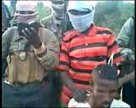
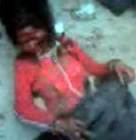

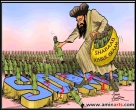

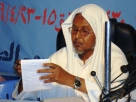
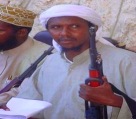
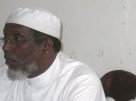











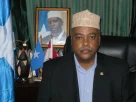

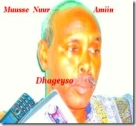
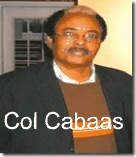


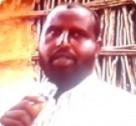
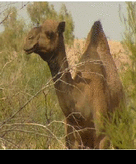










Leave a comment